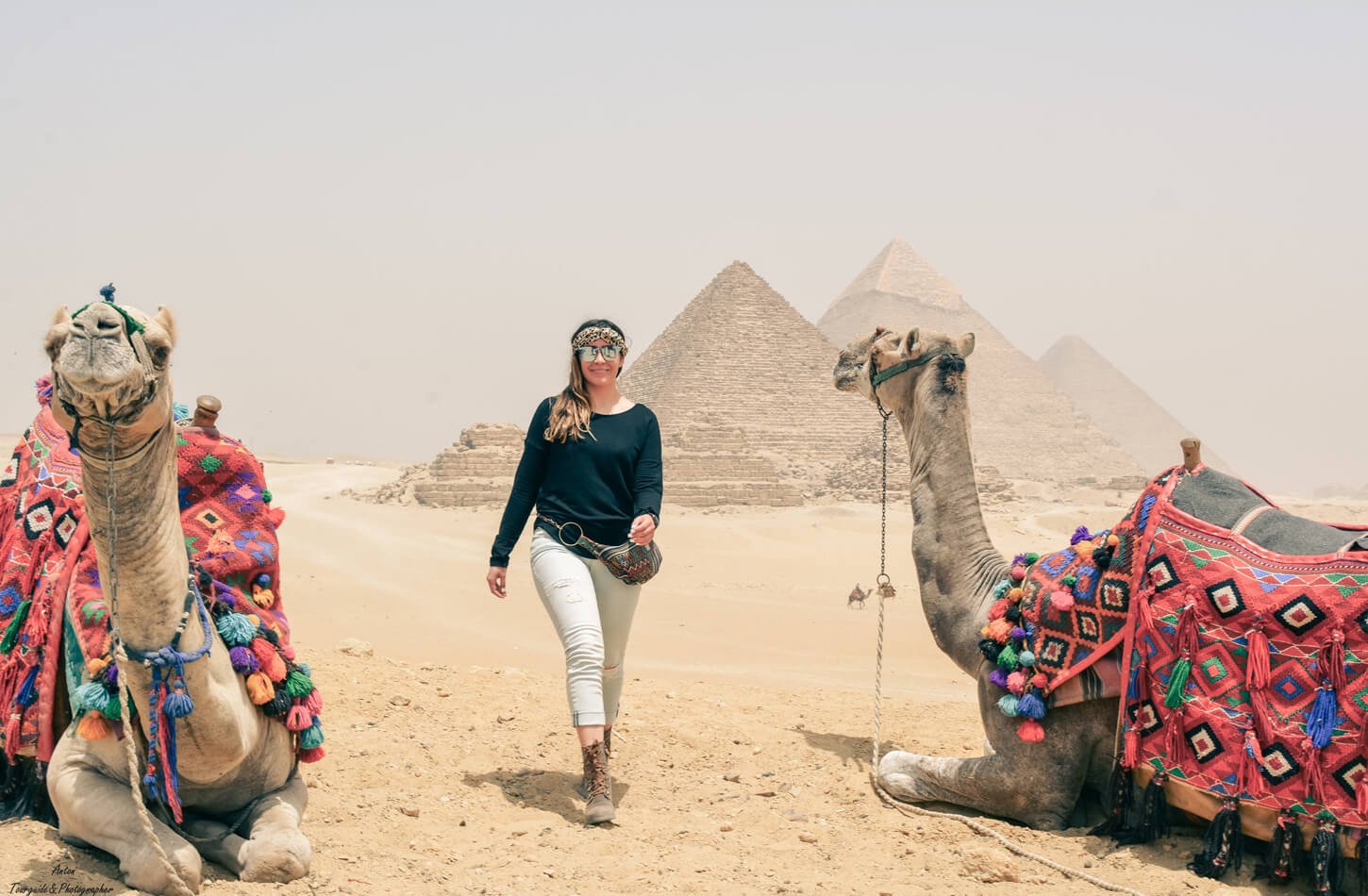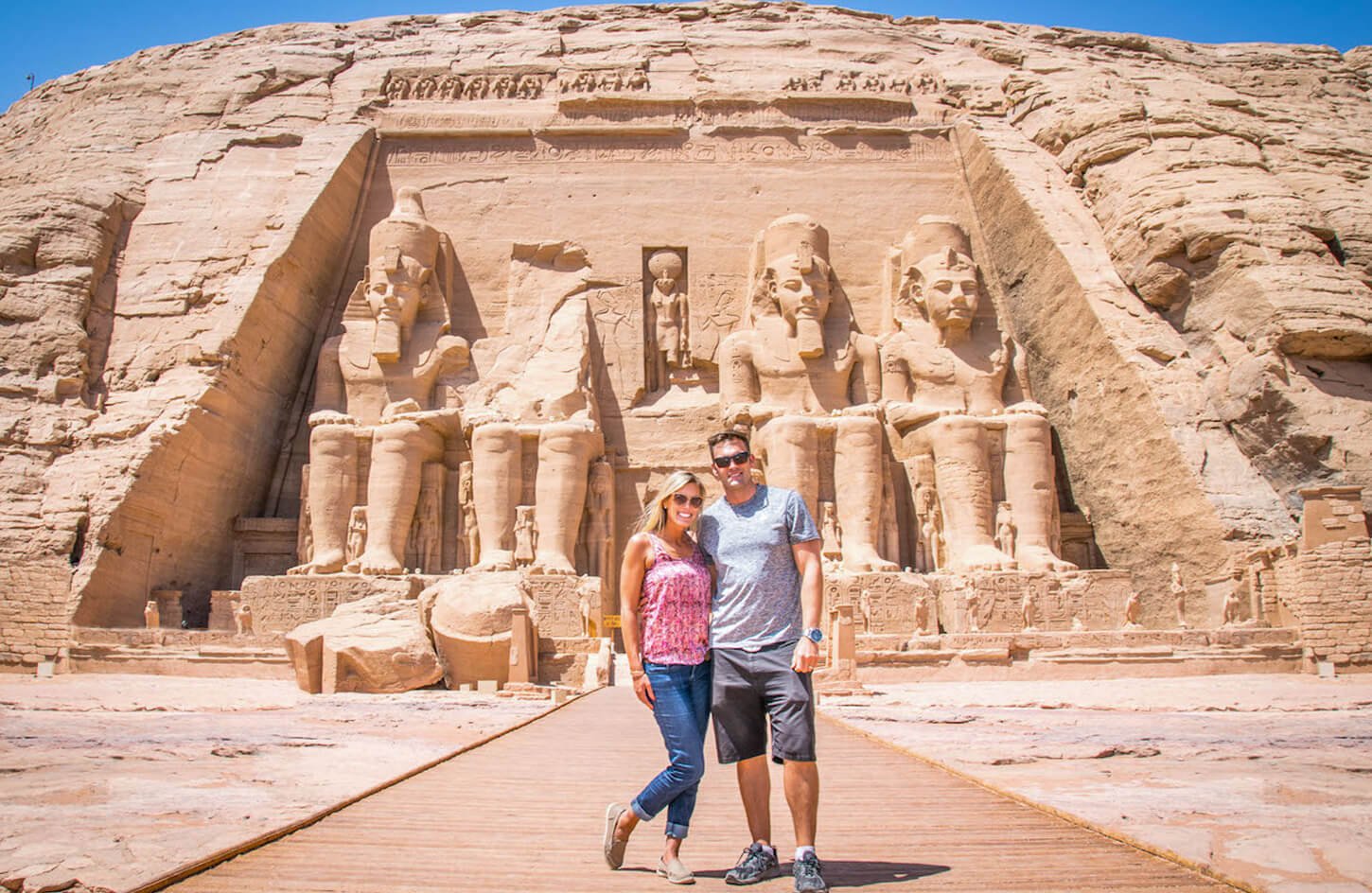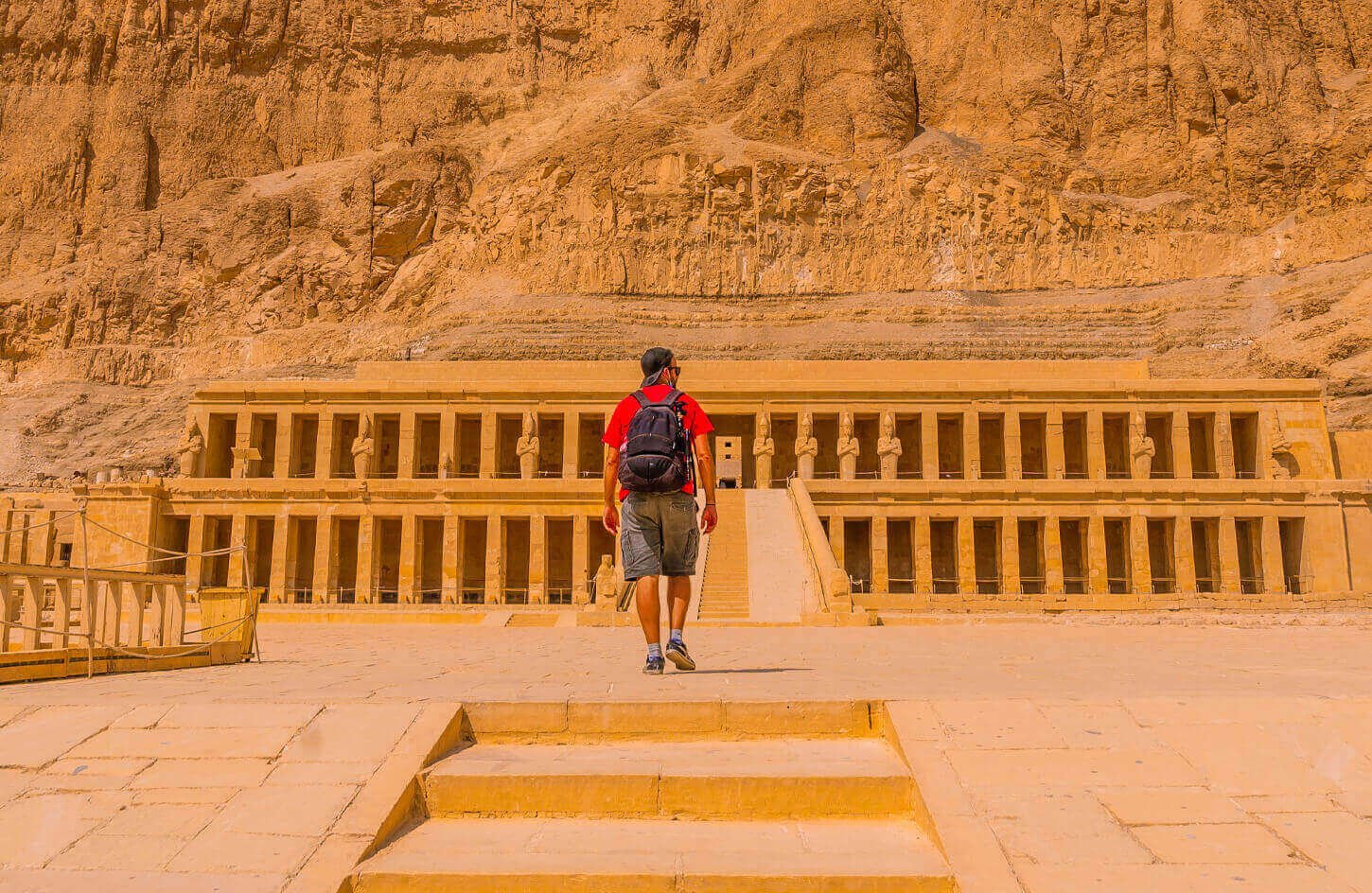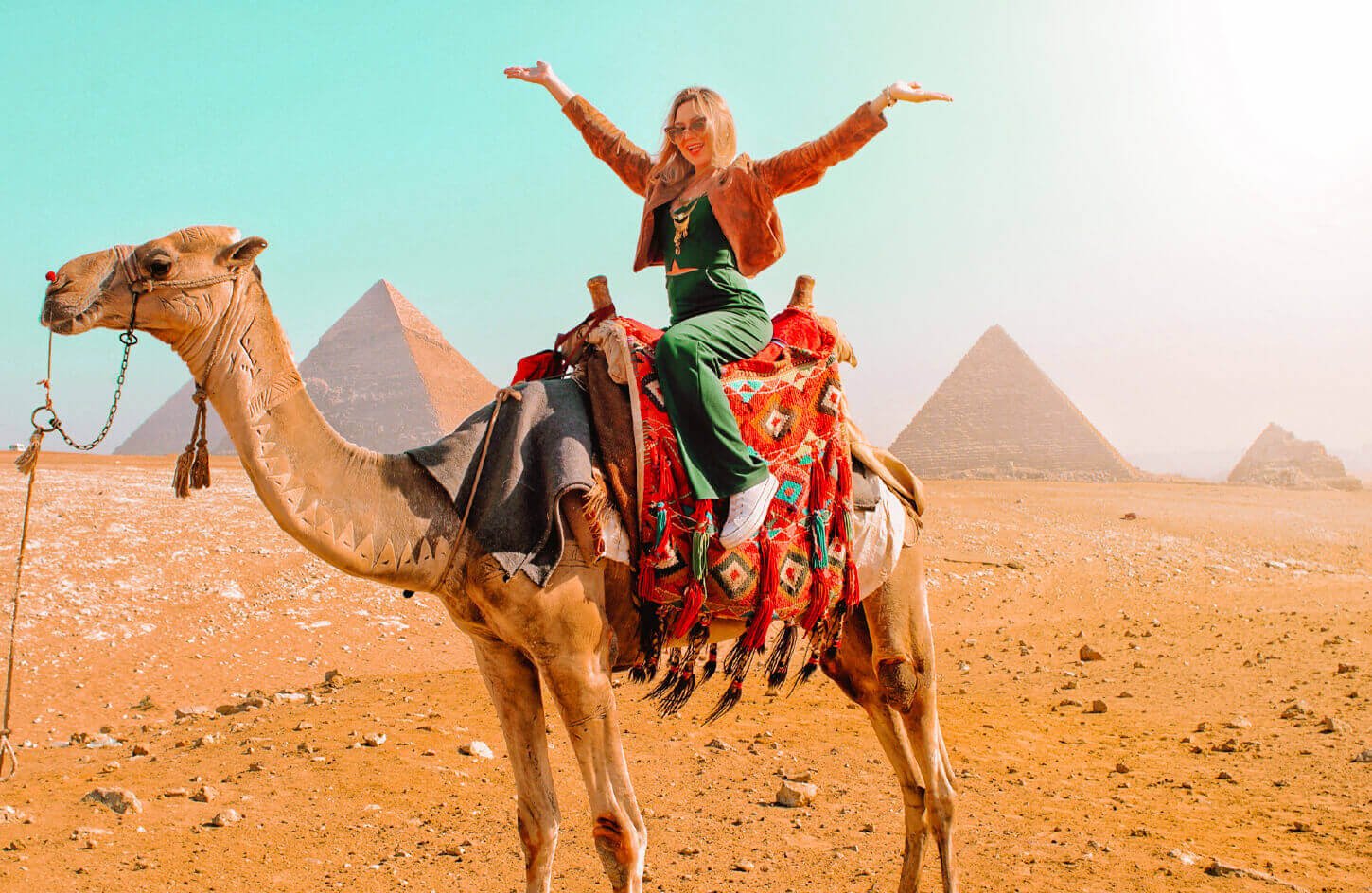Planning a trip to Egypt? Knowing cultural etiquette is key to a smooth trip. From Cairo’s markets to Luxor’s temples, local customs make your visit special.
Remember, dress modestly in religious sites. Cover your shoulders and knees. Women traveling alone should stay alert and use the 24/7 tourist police hotline (126) for safety.
For tipping, give 10%–15% in restaurants or 5–100 EGP for small services. A visa costs $25 for 30 days. SIM cards from Vodafone or Etisalat at Cairo Airport keep you connected.
Summer can get very hot (up to 43°C/109°F), so protect yourself from the sun. In winter, it can get chilly (10°C/50°F), so dress in layers. Floods are common from June to September near the coast, so stay updated.
Respecting local traditions is important. Avoid public displays of affection and ask before taking photos of people. This guide helps you enjoy Egypt while respecting its culture. Let’s explore how cultural awareness makes your trip unforgettable.
Understanding the Importance of Cultural Etiquette for Travelers in Egypt
Traveling to Egypt is more than seeing pyramids and history. It’s a chance to really connect with a lively culture. By learning cultural norms in Egypt, you get to have meaningful experiences. Locals will welcome you with friendship and trust.
Why Cultural Awareness Enhances Your Egyptian Experience
- Over 80% of Egyptians like it when travelers say “ahlan” (welcome) or “shukran” (thank you).
- Wearing the right clothes, like covering shoulders and knees, shows respect. It’s valued in religious places and everyday life.
- Using your right hand for eating or greeting is important. It avoids accidentally offending 70% of Egyptians, who see the left hand as unclean.
How Respecting Local Customs Opens Doors
Locals often welcome respectful travelers into their lives. Imagine being invited to a Ramadan iftar dinner or a family’s home. These experiences are rare for those who ignore traditions. Stats show 55% of tourists who respect customs feel closer to the community.
- Always ask permission before taking pictures of people or sacred sites. It helps build rapport.
- Tip 10–15% at restaurants and give small baksheesh for services. It’s expected and appreciated.
Balance Tourist Habits with Local Traditions
Respecting others doesn’t mean losing yourself. Find a balance. During Ramadan, don’t eat in public during daylight hours. Public displays of affection? Keep them private. When unsure, just observe and adapt:
- Be ready to haggle in markets, but do it nicely. 50% of visitors enjoy this part of the experience.
- Wear modest clothes, even in tourist areas. It shows respect for Islamic traditions followed by 90% of the population.
Small actions can lead to big rewards. Egyptians welcome curious and respectful travelers. They might even offer you a cup of mint tea.

Dress Code Guidelines: Navigating Egyptian Modesty Standards
Understanding Egyptian customs for tourists begins with knowing what to wear. Egypt is more open than some places, but dressing modestly is key. It shows respect and keeps you out of trouble. Here’s how to dress right:
- Shoulders and knees covered: Both men and women should keep their arms and legs covered. Wear loose tops and skirts or pants that fall below the knee. This is important in conservative places like old sites or small towns.
- Summer-friendly fabrics: Pick light cotton or linen for the hot summer. Light colors help keep cool, and layers help with the heat.
- Footwear and accessories: Wear strong, closed shoes for temple visits and markets. Bring a scarf or shawl for mosques or churches. Women might wear a headscarf in very traditional areas.
- Gender-specific tips: Women, avoid sleeveless tops and tight clothes outside resorts. Men, don’t wear shorts in formal spots like government buildings or fancy restaurants.
- Beach vs. city: Swimwear is okay at resort pools or private beaches. But, change into covered clothes when you leave the resort.
Don’t wear gym clothes or too revealing outfits in public. Even in Cairo’s busy markets, people appreciate modest dressing. Dressing modestly helps you connect with locals and stay cool in Egypt’s lively weather.
Religious Etiquette: Showing Respect in Mosques and Sacred Sites
Visiting Egypt’s mosques and holy sites is a deep dive into culture. But, it’s key to follow Egypt etiquette guidelines to show respect. These rules help you honor traditions that are a big part of daily life.
Appropriate Mosque Visiting Attire
Wearing modest clothes is a must. Here’s what you should wear:
- Cover your shoulders, knees, and chest. Men should wear long pants and shirts with sleeves past elbows.
- Women should wear headscarves (you can find them on-site or bring your own).
- Take off your shoes before going inside—there are places to store them.
Timing Your Visits Around Prayer Times
Prayer times set the schedule for mosques. Plan your visits:
- Don’t go in during prayers (there are five times a day, and they change with the seasons).
- Check local timetables or ask staff—Friday midday is very busy for prayers.
- During Ramadan, visit during non-fasting hours (after sunset).
Photography Rules in Religious Settings
Some places don’t allow photos. Here’s what to do:
- Always ask before taking pictures inside mosques or sacred areas.
- Don’t take photos of worshippers without their permission.
- Many sites don’t allow photography near shrines or mihrabs (prayer niches).
Respectful Behavior During Religious Holidays
Adjust your actions during Ramadan and Eid:
- Don’t eat, drink, or smoke in public during daylight in Ramadan.
- Be quiet during prayers and avoid loud talks in holy places.
- Join in celebrations with respect—ask before joining in rituals.
Social Greetings and Interactions with Locals
In Egypt, knowing how to greet and interact with locals is very important. It helps you build trust and respect. Here’s how to show honor to others, which is a big part of Egyptian customs for tourists:
- Handshakes & Greetings:
- Men shake hands with men, women with women—wait for them to extend their hand first.
- Use “As-salamu alaykum” (Peace be upon you) and respond with “Wa alaykum as-salam.” Smile and eye contact are always appreciated.
- Personal Space Matters:
- Keep a respectful distance during conversations. Egyptians value modesty—avoid standing too close or touching strangers, as 70% prefer this.
- In crowded markets, apologize (say “A’afiyah” or “Excuse me”) if brushing past someone.
- Show Respect for Age & Status:
- Address elders as “Habibi” (dear) or “Sayyeda” (lady) to show respect. Younger travelers should let older Egyptians speak first in groups.
- When praised, reply with “Alhamdulillah” (Thanks to God) instead of “thank you”—it’s humble and expected.
Pro tip: 80% of travelers who follow these Egyptian customs for tourists report deeper local connections. Start small—learn “Shukran” (thank you) and mirror how locals greet each other. Your effort to respect these norms turns curiosity into camaraderie.
Dining Etiquette and Food Customs You Should Know
Egypt travel advice often highlights dining as a key cultural touchpoint. Follow these dos and don’ts in Egypt to navigate meals with confidence:
- DO use your right hand only for eating. Over 75% of Egyptians consider the left hand unclean for meals.
- DO compliment food boldly: “This is superb!” instead of questioning recipes. 90% of meals include bread, a staple to pair with every dish.
- DO leave a small portion on your plate. This signals satisfaction and avoids endless refills—hosts offer extra food 85% of the time.
- DO savor spices like cumin and coriander, featured in 70% of dishes. Ask locals about regional favorites like ful or ta’meya.
- DON’T refuse food immediately. Politely decline after the second offer to respect hospitality norms.
- DON’T eat or drink in public during daylight in Ramadan. This shows respect for fasting traditions.
- DON’T ask “How was this made?”—it might imply distrust. Instead, ask for recipe origins as a conversation starter.
- DON’T use your left hand for passing dishes or accepting food.
During home visits, 60% of hosts serve tea or coffee. Accepting this is key to building rapport. Meals often last 1.5–2 hours, with conversation flowing naturally. Follow these tips to enjoy Egypt’s warm hospitality while respecting its culinary traditions.
Navigating Egyptian Markets: Bargaining with Respect
Exploring Egyptian markets is a lively adventure. But, it’s key to mix excitement with respect for local ways. These Egypt travel tips help your shopping trips show respect for cultural norms in Egypt. They also make your interactions fun and positive.
The Art of Haggling Without Offending
- Start with a friendly greeting like “Salaam” (Peace) or “Sabah el khair” (Good morning).
- Begin negotiations at 30-50% below the asked price—vendors expect this dance.
- Walk away if prices don’t align; sometimes, vendors will call you back with a lower offer.
- Avoid aggressive tactics—keep the tone light with phrases like “Inshallah” (If God wills it) to show flexibility.
Appropriate Market Behaviors and Expectations
- Handle items gently; don’t stack or drop goods to show respect for craftsmanship.
- Ask permission before photographing merchandise or vendors—some may decline due to privacy concerns.
- Avoid comparing prices aloud with other vendors; this can cause tension.
- Respect closing times—vendors may politely refuse haggling as markets wind down.
Building Rapport with Local Vendors
- Learn simple Arabic phrases like “Shukran” (Thank you) to show effort and kindness.
- Show genuine interest in their crafts or stories—Egyptians value connection over quick sales.
- Compliment items you like, even if not buying—kindness leaves lasting impressions.
- Thank vendors even if you don’t purchase; rudeness can offend cultural norms in Egypt.
Gender Considerations and Respectful Interactions
Traveling in Egypt means understanding gender norms. Follow these Egypt etiquette guidelines for respectful interactions:
- Keep public affection private: Holding hands or kissing in public can cause stares and legal issues. Egyptians see it as wrong. So, keep intimacy for private places.
- Dress modestly: Women in rural areas wear long, loose clothes. In cities like Cairo or Luxor, styles vary. Always cover shoulders and knees to be conservative.
- Handle attention calmly: Solo women may get stared at or talked to. Ignore unwanted attention and avoid eye contact if you’re uncomfortable. Stay in busy, well-lit places.
- Avoid sensitive topics: Talking about gender roles or politics can lead to misunderstandings. Stick to interests like history or food to connect better.
- Use local transportation safely: Choose trusted taxis or group tours. Tell hotel staff about your plans. And don’t take unmarked cars, specially at night.
- Learn basic Arabic phrases: Saying “la shukran” (no, thank you) or “afwan” (excuse me) shows respect. It helps you interact confidently.
Cairo and Luxor are generally safe for visitors. But being culturally sensitive in Egypt makes your trip better. Follow Egypt etiquette guidelines to respect local customs. Be modest, stay alert, and be open to enjoy Egypt’s friendly welcome.
Photography and Privacy: When to Ask Permission
Photography in Egypt mixes cultural respect with today’s travel ways. Follow these tips to take great photos while respecting local rules. Here are key dos and don’ts in Egypt to remember:
- Military zones and government buildings are off-limits: Never take photos of checkpoints, airports, or security people. Doing so could lead to fines or legal trouble.
- Ask before snapping people: Asking permission makes photos better. Say “Amen ahtazzakum bi-l-sūra?” (“May I take your photo?”) and maybe give a candy or a photo copy.
- Understand permit requirements: Places like Deir el-Medina charge 300 EGP for photo permits. Mobile phones are okay, but drones and business use need permission.
When posting online, blur faces or ask for permission first. Over 65% of travelers say this makes their experience richer. Don’t tag sensitive places and respect modesty—never take photos of trash or private areas.
- Respect religious sites: No photos during prayers or in restricted areas.
- Engage with locals: Many kids and artisans like photos, but ask first. Groups might gather, so be patient.
- Review updates: After 2011, street photography is okay without permits, but check rules for business use.
By showing respect, your Egypt travel advice trip will be both legal and meaningful. Taking photos with care ensures you make friends and get amazing pictures.
Gift-Giving and Receiving in Egyptian Culture
Gifts are very important in Egyptian customs for tourists. Knowing the right gestures shows respect for cultural etiquette for travelers in Egypt. Here’s how to give gifts without making mistakes.
Appropriate Gifts for Egyptian Hosts
- Chocolates or pastries: A small box of high-quality sweets is always appreciated. Flowers are off-limits—they’re reserved for weddings, funerals, or the sick.
- Local or cultural items from home: Bring small souvenirs from your country. Avoid alcohol or perfume for women (it’s seen as overly personal).
- Children’s toys: A small toy or book for kids is a friendly gesture. Keep gifts modest—expensive presents might make hosts uncomfortable.
Understanding Gift Refusal and Acceptance
Gifts may be politely declined before acceptance. Follow these steps:
- Present gifts with care: Use your right hand or both hands. The left hand is reserved for private use in Egyptian tradition.
- No instant unwrapping: Hosts often delay opening gifts. This isn’t rudeness—it’s part of the tradition.
- Refusal is polite: A “no, thank you” might mean “I’ll accept, but I must say no first.” Gently insist if they hesitate.
Small gestures go a long way. A thoughtful gift, presented respectfully, builds connection. Remember: generosity in Egypt is about sincerity, not expense.

Public Behavior: Avoiding Common Cultural Missteps
Learning the dos and don’ts in Egypt begins with careful public behavior. Egyptians cherish modesty and tradition in public places. Here’s how to fit in:
- Foot Positioning: Never point your feet or shoes toward others. In Islamic culture, the soles of shoes are seen as unclean. So, keep them turned away from people.
- Ramadan Respect: During daylight fasting hours, avoid eating, drinking, or smoking in public. Even if you’re not Muslim, show respect in markets, streets, or public transport.
- Affection Boundaries: 90% of locals dislike public displays of affection. Keep physical interactions private to avoid making others uncomfortable.
- Dress Modesty: Even in summer, cover shoulders, knees, and midriffs in non-tourist areas. Wearing revealing clothes can attract unwanted attention.
- Photo Etiquette: Always ask before taking photos of people or sacred sites. Don’t take pictures of villagers, children, or military zones without permission.
- Queue Culture: Stand back politely in lines. Egyptians value orderly wait times. Avoid pushing ahead unless it’s culturally okay.
Respecting Egyptian culture means changing your habits. Avoid loud public arguments and carry small LE bills for tips. Over 75% of travelers who follow these tips report better interactions. Keep conversations light on politics or religion, and always greet first when entering shops or homes. Small gestures, like using your right hand for gestures, show you value local traditions. This makes your journey more welcoming for everyone.
Communication Tips: Managing Language Barriers with Grace
Good communication makes every trip better. These tips and guidelines help you talk with locals in Egypt.
Essential Arabic Phrases for Travelers
- Basic greetings: Say “Salaam alaykum” (Hello) and “Shukran” (Thank you) to show respect.
- Practical questions: Use “Afwan” (Excuse me) and “Leyf hena?” (Where is here?) to ask for help.
- Emergency terms: Say “Sila” (Please) and “Mush afandi” (Not available) in urgent situations.
Non-Verbal Communication Differences
- Eye contact: Short looks are okay, but long stares might be seen as rude.
- Personal space: Egyptians stand closer than people in the West. Keep this distance to avoid awkwardness.
- Gestures matter: A thumbs-up means yes, but don’t point with your fingers—it’s considered impolite.
Using Translators and Translation Apps
- Download apps like Google Translate for quick translations of menus or signs.
- For important talks, get a certified translator to avoid mistakes.
- Always check with locals to make sure you understand correctly.
Egyptians value your effort to speak their language. Smile and nod to show you’re listening. Remember, body language is key to good communication.
Conclusion: Embracing Egyptian Culture for a Transformative Travel Experience
Respecting Egyptian culture makes your trip more than just seeing sights. Start by understanding what to wear. Covering your shoulders and knees is key, and a scarf is a must for places like Luxor and Karnak Temples.
Egypt travel tips often mention festivals like Ramadan. Here, 90% of people join in, and Eid al-Fitr brings three days of celebration. Saying “shokran” (thank you) in Arabic shows respect and connects you with locals.
Guided tours offer deep insights into Egyptian traditions. Abercrombie & Kent and Intrepid have tours that are small and meaningful. These tours highlight communal meals and guided tours of places like the Pyramids of Giza.
Respect prayer times at mosques and ask before taking photos. Timing is also important. The best weather is in fall and spring, and Ramadan means shorter hours for businesses.
Exploring with respect opens doors to new experiences. Sharing kunafa or haggling fairly builds connections. Even small acts, like accepting tea, show respect for Egypt’s hospitality.
Most tour operators focus on safety, ensuring health measures while sharing traditions. By following these tips, you’ll experience a culture that’s both ancient and welcoming. Respectful travel is more than avoiding mistakes; it’s a chance to connect with history and daily life. Your journey will leave you with memories as deep as the Nile.
Read our Related Article:








